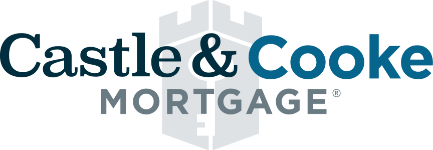
Hey there, future homeowners!
We know that buying your first home can seem like a daunting process, but we're here to break it down for you and make it as smooth as possible. Think of it as a journey, and we're your trusty guide. Let’s walk through the steps together so you feel confident and ready to make that big move!
Step 1: Getting Pre-Qualified
The first step on your home-buying journey is to get pre-qualified for a mortgage. This means visiting with a Castle & Cooke Mortgage loan officer to discuss your financial situation. We’ll look at your income, debts, and credit score to give you an idea of how much house you can afford. This isn't a final approval, but it’s a helpful starting point and shows sellers you're serious.
Step 2: Finding a Real Estate Agent
Next, you'll want to find a real estate agent. A good agent can make a world of difference, guiding you through the home search, negotiations, and paperwork. Make sure to find someone you trust and feel comfortable with. Your Castle & Cooke Mortgage loan officer might have a few agents in mind they can recommend.
Step 3: Signing a Buyer Representation Agreement
Before your agent can start showing you houses, you'll need to sign a Buyer Representation Agreement. This is a required step that ensures your agent represents your best interests throughout the buying process, and you can negotiate their commission. It’s a standard part of the process, so don’t worry!
Step 4: Going Under Contract
Once you find a home you love, it’s time to make an offer. Your agent will help you determine a fair price and submit your offer to the seller. If the seller accepts, you’ll go under contract. This means you and the seller have agreed on the terms of the sale, and you’ll start the next steps in the process.
Step 5: The Home Loan Process
Now comes the financing part. Here’s a breakdown of some key terms you’ll encounter:
- Debt-to-Income Ratio (DTI): This is the percentage of your monthly income that goes toward paying debts. Lenders use this to determine how much you can afford to borrow. A lower DTI is better because it shows you manage your debt well.
- Down Payment: While the traditional down payment is 20%, many buyers put down much less. There are various programs available that require as little as 3% down, with some programs even offering as little as zero down! Don’t let the myth of needing 20% hold you back!
- Closing Costs: These are fees associated with finalizing your mortgage. They typically range from 2-5% of the loan amount and cover things like appraisal fees, title insurance, and attorney fees. Sometimes you can negotiate a seller concession to pay for these. There are also programs out there that loop together assistance for both down payment and closing costs
How to Put Yourself in the Best Buying Position
- Boost Your Credit Score: Pay down debts and make sure all your bills are paid on time. A higher credit score can get you better interest rates.
- Save for a Down Payment: Even though you don’t need 20%, having some money saved can help with your down payment, closing costs, and buyer agent commissions if the seller chooses to not cover them.
- Get Financial Documents in Order: Have your tax returns, bank statements, and pay stubs ready. This will speed up the pre-qualification process.
Down Payment Assistance Programs
There are many programs out there designed to help first-time homebuyers with their down payments. These can include grants, loans, and other types of assistance. Be sure to ask your Castle & Cooke Mortgage loan officer about what you might qualify for.
Final Thoughts
Buying your first home is a big deal, but with the right knowledge and preparation, it doesn’t have to be overwhelming. Remember, this journey is about finding a place where you’ll create memories and build your future. Take it step by step, and don’t hesitate to ask questions along the way.
Happy house hunting!


